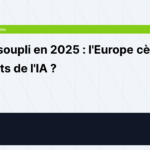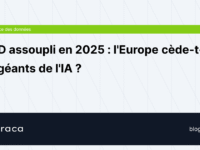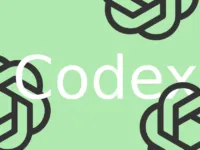Publié : 25 November 2025
Actualisé : 8 hours ago
Fiabilité : ✓ Sources vérifiées
Je mets à jour cet article dès que de nouvelles informations sont disponibles.
📋 Table of Contents
Let’s face it, we’ve all been a bit blown away by generative AIs. ChatGPT, Claude, Gemini… they’ve become our super personal assistants, capable of drafting emails, summarizing complex concepts, or even helping us brainstorm. It’s magical, fast, and gives the impression of having all the world’s knowledge at your fingertips.
But when it comes to diving into serious scientific research, the kind that demands evidence, solid sources, and unwavering rigor, the magic fades. That’s where the problem lies: where are the verifiable sources? How can you base a thesis, a technical report, or a study on information whose origin is vague, or even invented? This is a major limitation, and it’s precisely the problem that Consensus, a rather unique AI, brilliantly solves.
🤖 The Problem with General-Purpose AIs: The Mirage of Sources
General-purpose AIs are digital Swiss Army knives. They excel in their versatility, responding to a myriad of requests. But this strength quickly turns into an Achilles’ heel when it comes to the scientific domain. They can generate incredibly fluid and convincing answers, delivered with a confident tone, but too often, the sources are absent, incomplete, or worse, completely fabricated. You end up with a beautiful facade, but no academic foundation to support it.
Imagine for a moment having to cite a ChatGPT report in a serious publication. Unthinkable, right? Moreover, science evolves at breakneck speed. In sectors like cybersecurity, medicine, or AI itself, a study from a few years ago can already be obsolete. A classic AI can casually mix old and new information without distinction, leaving the user in the dark. Consensus, on the other hand, chose specialization, and that’s what makes all the difference.
The key takeaway: General-purpose AIs excel in versatility but fall short due to a lack of reliable sources and potentially outdated information for scientific research.
🔬 Consensus: The Sherlock Holmes of Science
Where Consensus makes a decisive point is in its exclusive focus on academic literature. Forget answers based on word probabilities gleaned from the web. When you ask Consensus a question, the AI won’t invent an answer; it will search a colossal database of peer-reviewed scientific articles and extract the actual scientific consensus on your topic. It’s a paradigm shift.
It’s like moving from a friend giving you their opinion to an expert presenting you with concrete evidence and studies. Consensus shows you the broad outlines of established knowledge, the key studies that support certain conclusions, and most importantly, it gives you citations and article summaries that you can consult and verify yourself. For a student, a researcher, or a tech professional, it’s an invaluable time-saver and a leap in credibility.
“Consensus transforms how we interact with scientific literature. Instead of searching for needles in a haystack, it puts them directly into our hands, with their original labels.”
🛠️ How to Use Consensus in Your Daily Workflow?
Integrating Consensus into your workflow is surprisingly simple. Whenever you have a question that requires solid evidence and academic references, it should be your first reflex. Rather than getting lost in the labyrinth of a classic search engine, formulate your query in the app, and let the AI present you with an overview of the most relevant scientific results.
Important: Remember to formulate precise questions. For example, instead of “are screens bad?”, ask “Does pre-sleep screen time affect sleep quality in adolescents?”. The more targeted the question, the more relevant the results.
✨ Key Features for Demanding Researchers
Consensus doesn’t just give you results. It’s designed with powerful tools to refine your search and ensure the relevance of the information. This is where it truly stands out for users who don’t compromise on quality and verifiability.
| Feature | Benefit for the User |
|---|---|
| Temporal Filters | Ensures access to the most recent studies, avoiding outdated information. |
| Boolean Search | Allows ultra-precise queries (AND, OR, NOT) for targeted results. |
| Direct Source Access | Provides links to original articles and their citations for easy verification. |
| Consensus Summary | Highlights dominant conclusions and divergences within the scientific literature. |
💸 Limitations and Cost: Who is it for?
Despite its superpowers, Consensus is not a magic wand. It doesn’t replace the critical thinking of the researcher. It’s a powerful assistant for discovery and contextualization, but in-depth analysis and interpretation of results remain your responsibility. It’s a tool to accelerate the research phase, not to replace it entirely.
As for the cost, Consensus often offers a limited free version and paid subscriptions for unlimited access and advanced features. It is primarily aimed at students, academics, R&D professionals, science journalists, and anyone whose work requires a solid and verifiable factual basis.
✅ My Verdict: A New Scientific Reflex?
For me, Consensus represents a major step in integrating AI to serve scientific rigor. It’s the tool that was missing to bridge the gap between the speed of generative AIs and the verifiable demands of the academic world. No more hours spent scouring databases, hoping to stumble upon the right study. No more stress about dubious sources.
If your work depends on the reliability of information, if you constantly need to rely on proven facts and validated studies, then yes, Consensus is much more than a gadget. It’s a new reflex to adopt, an indispensable extension of your digital toolkit. It’s no longer about choosing between speed and reliability, but having both.














0 Comments